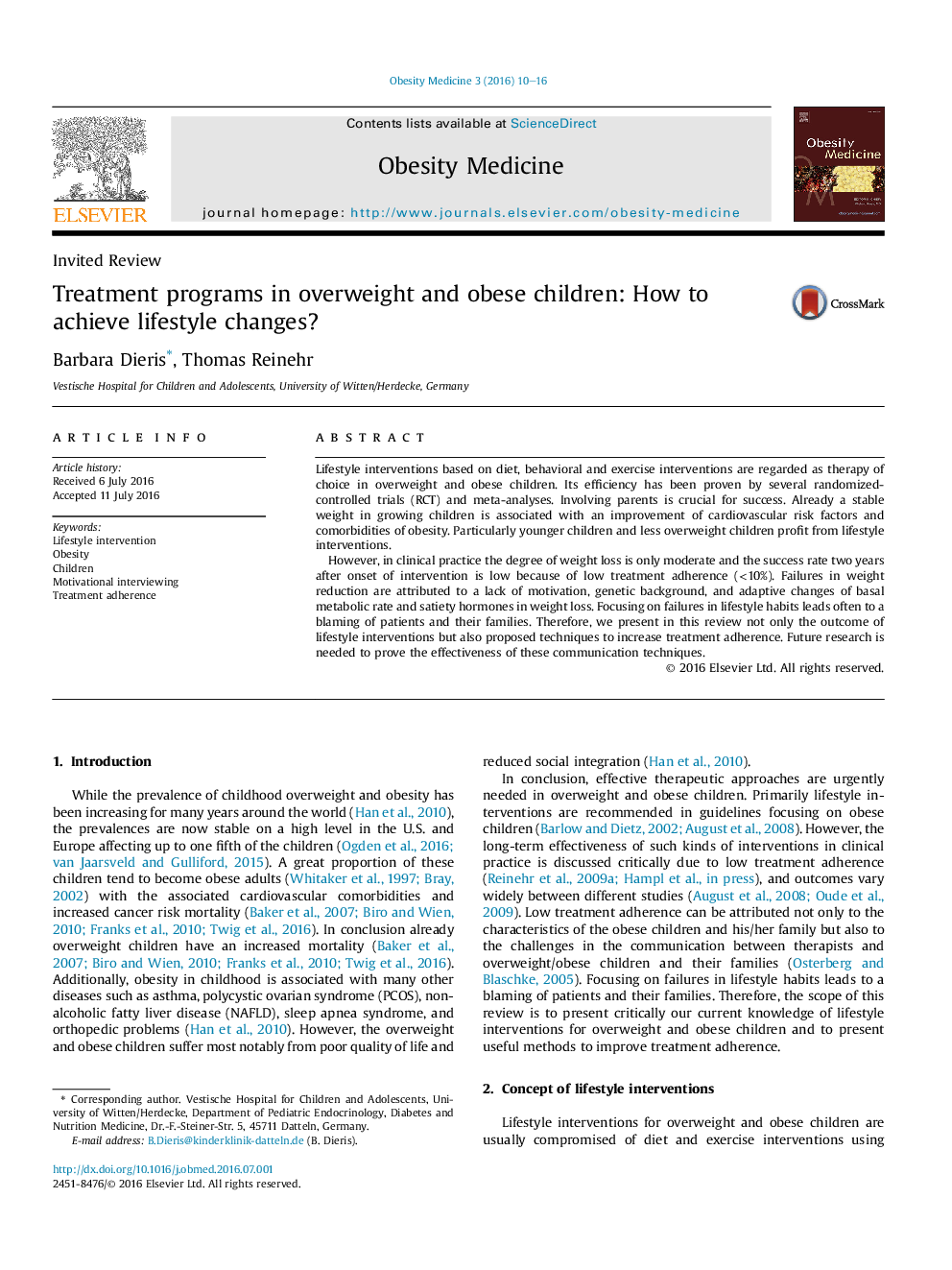| Article ID | Journal | Published Year | Pages | File Type |
|---|---|---|---|---|
| 1097074 | Obesity Medicine | 2016 | 7 Pages |
Lifestyle interventions based on diet, behavioral and exercise interventions are regarded as therapy of choice in overweight and obese children. Its efficiency has been proven by several randomized-controlled trials (RCT) and meta-analyses. Involving parents is crucial for success. Already a stable weight in growing children is associated with an improvement of cardiovascular risk factors and comorbidities of obesity. Particularly younger children and less overweight children profit from lifestyle interventions.However, in clinical practice the degree of weight loss is only moderate and the success rate two years after onset of intervention is low because of low treatment adherence (<10%). Failures in weight reduction are attributed to a lack of motivation, genetic background, and adaptive changes of basal metabolic rate and satiety hormones in weight loss. Focusing on failures in lifestyle habits leads often to a blaming of patients and their families. Therefore, we present in this review not only the outcome of lifestyle interventions but also proposed techniques to increase treatment adherence. Future research is needed to prove the effectiveness of these communication techniques.
